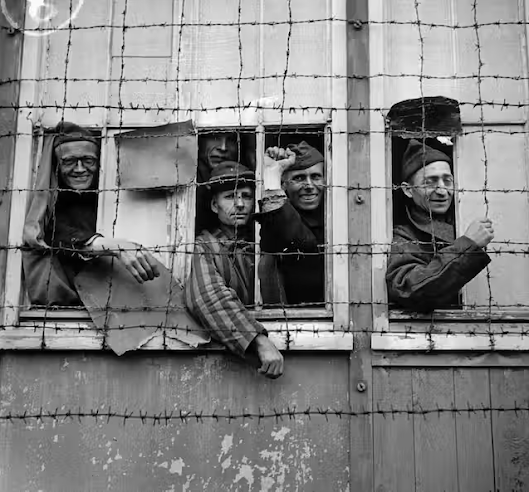In the Canadian parliament last year, an outcry erupted after 98-year-old Ukrainian-Canadian Yaroslav Hunka was presented to Ukrainian President Volodymyr Zelensky as a hero of the second world war.
It turned out Hunka had fought against the Allies as a voluntary member of the Nazi German Waffen-SS Galizien division. The incident was deeply embarrassing for Canada; Prime Minister Justin Trudeau was forced to publicly apologise.
The incident also highlighted the ignorance of many Canadians when it comes to world history, as well as the makeup of their own post-war immigration schemes.
As I discuss in my new book, Fascists in Exile, Canada isn’t the only country where former Nazis fled after the second world war. And in many of these countries, families continue to grapple with the legacies of this turbulent time in history.
In Australia, for instance, when a Lithuanian immigrant named Bronius “Bob” Šredersas died in 1982, he bequeathed a significant art collection to the city of Wollongong. Last year, however, his secret history was revealed: he was found to be a member of Nazi intelligence in occupied Lithuania during the second world war. He was almost certainly involved in the persecution and murders of Jews.
In response to a report by Professor Konrad Kwiet of the Sydney Jewish Museum, the Wollongong City Council removed a plaque acknowledging the donation and updated its website with the new information about Šredersas’ past.
These may seem to be isolated, rare cases. They are not. (more...)

No comments:
Post a Comment